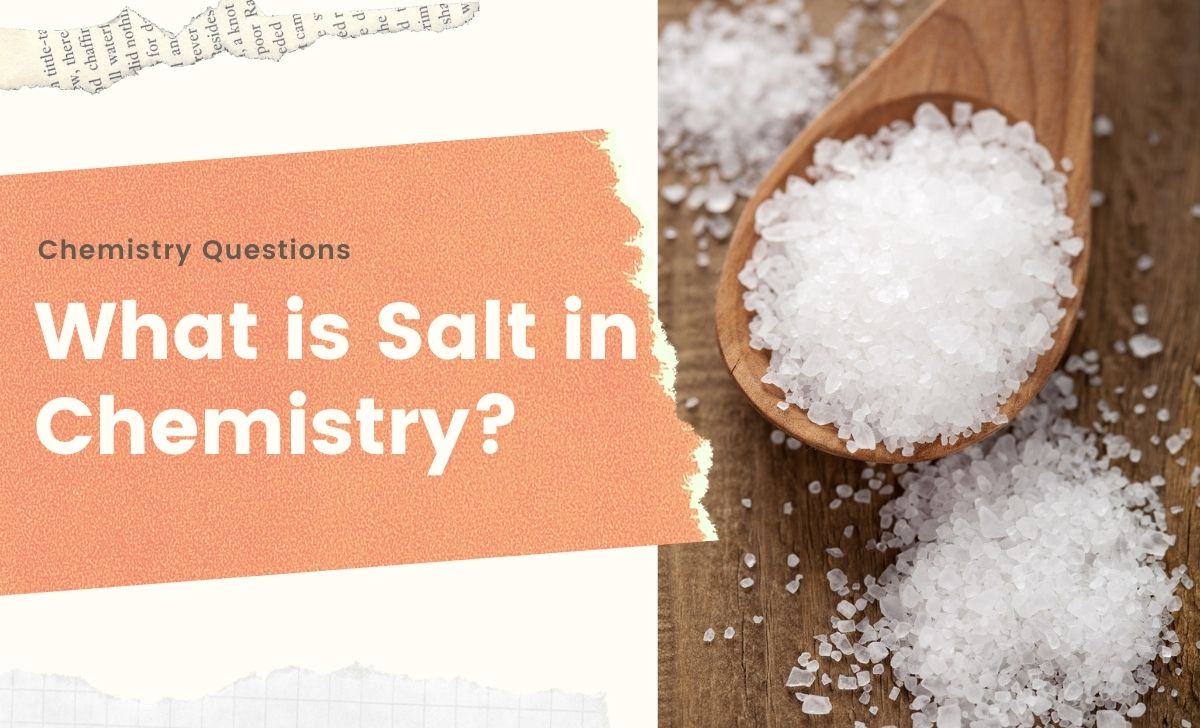Enrich your knowledge with our informative blogs
What is Salt in Chemistry?

Salt is an ionic compound consisting of an anion known as acid and a cation known as base. Salt is present in large quantities in seawater, where it is the primary mineral constituent. Saltiness is one of the basic human tastes and is essential for an animal’s life.
It is an ionic compound with an anion other than OH- and a cation other than H+. However, it is obtained along with the water in the neutralization reaction between bases and acids.
Acid + Base Salt + Water
Sodium Chloride is the best-known salt that is mainly used broadly and is known to everyone.
Types of Salt
Acidic Salt: Acidic salt is formed by the partial neutralization of polyprotic or diprotic acid. Acidic salts have ionizable H+ ions along with other cations. However, the ionizable H+ is a part of an anion, and some of the acid salts are utilized for baking purposes. E.g., NaHSO4
Alkali or Basic Salt: Alkali salt is generated by a strong base’s partial neutralization by a weak acid. Alkali salts are hydrolyzed to form a basic solution, as when the basic hydrolysis occurs, the conjugate base of a weak acid is produced in the solution. E.g., White lead.
Double Salt: Double salt contains more than one anion or cation. It is obtained by the combination of two different salts that are crystallized in the same ionic lattice. For e.g.: Rochelle salt.
Mixed Salt: Mixed salt contains a fixed proportion of two salts, often sharing either a common anion or cation. E.g., CaOCl2
Properties of salt
Saltwater contains ions.
Saltwater is a good conductor of electricity.
The electrostatic force of attraction holds the ions together, and a chemical bond is said to form in between them.
Read More – Chemistry Questions

Discover the exact logic behind the reactions!
Get a deeper understanding of every possible interaction between atoms, molecules and elements in an easy and fun-loving way.
Categories
Recent Posts
- List of the qualities you should look for in your tutors?
- What is the most useful formulas in math?
- Describe the process of eating to defecation of food?
- Difference between the natural and artificial active response by the immunology system.
- Explain the different circle theorems
- How are nerve cells adapted to their function?










